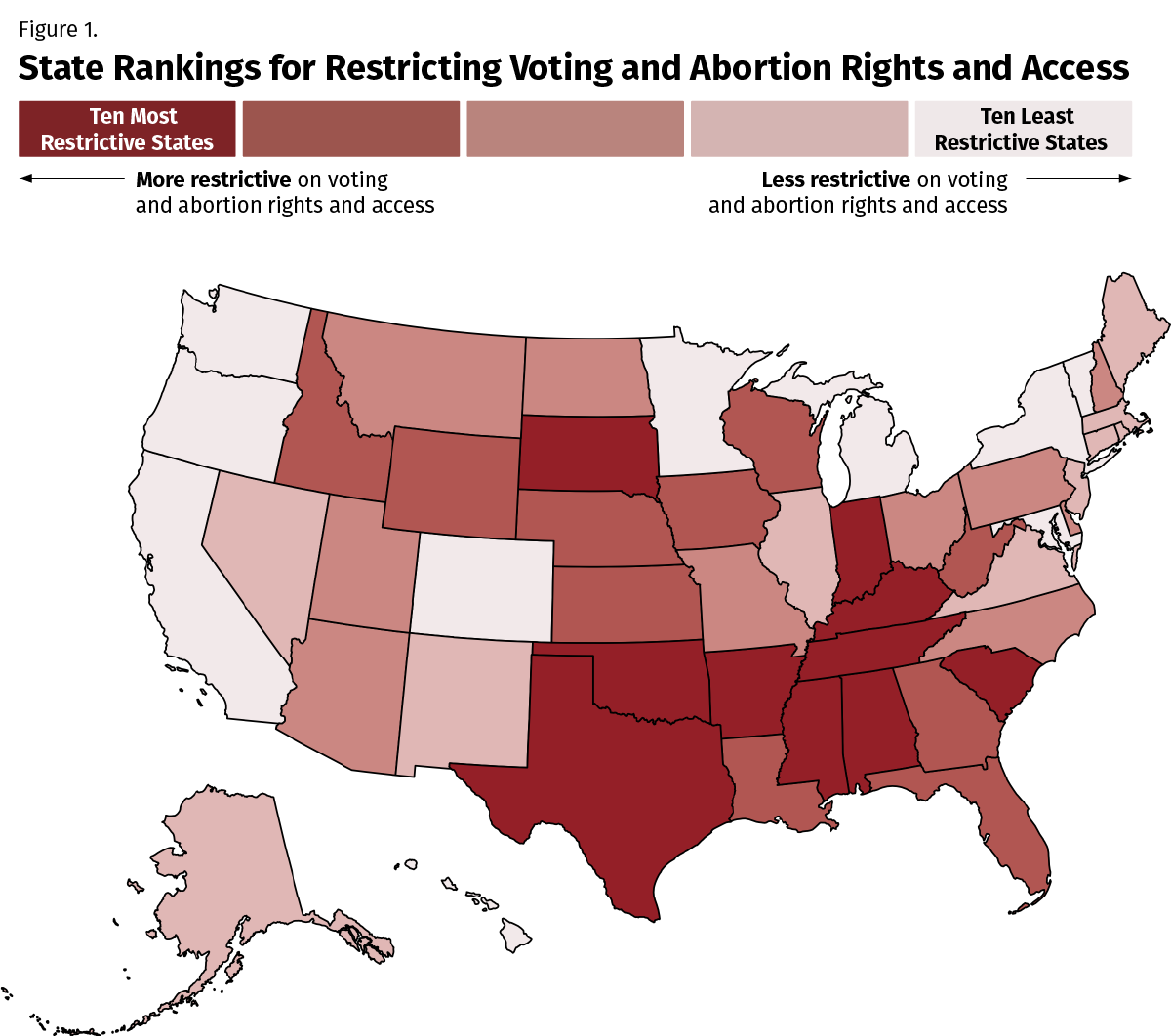The SAVE Act: A Threat to Reproductive Justice and Political Participation for AANHPI Communities
Reproductive justice is about more than abortion access—it is about ensuring that AANHPI women and gender-expansive people have the power to control their bodies, their families, and their futures. This includes the ability to participate in democracy and elect leaders who will protect reproductive freedoms. The Safeguard American Voter Eligibility (SAVE) Act threatens this right by imposing unnecessary barriers to voting, disproportionately impacting AANHPI women, gender-expansive people, and other communities of color.
The SAVE Act would unfairly deny access to the ballot box.
The SAVE Act would require all U.S. citizens to present documentary proof of citizenship when registering to vote or updating voter registration information. For an estimated 7.4 million eligible female AANHPI voters and gender-expansive individuals, acceptable forms of documentation include a birth certificate, passport, or naturalization papers—documents that many U.S. citizens do not have in updated or accessible forms.
Many women and gender-expansive people who change their names—whether due to marriage, gender affirmation, or other personal reasons—do not have birth certificates that reflect their current legal or chosen names. The SAVE Act fails to clarify whether change-of-name paperwork, marriage certificates, or gender marker updates would be acceptable documentation. According to the Pew Research Center, limited available data suggests that 30% to 64% of married AANHPI women change their last name, meaning an estimated 400,000 to 900,000 eligible female AANHPI voters could be disenfranchised.1 Gender-expansive individuals who have legally changed their names may also face additional scrutiny or outright barriers when presenting identification that does not match outdated documentation.
The SAVE Act is the latest effort to limit political participation for AANHPI communities.
Despite already stringent election security measures that verify citizenship through U.S. Department of Homeland Security data, the SAVE Act would add new, unnecessary barriers to voting. This is voter suppression masked as election protection.
For AANHPI women and gender-expansive people, the SAVE Act would compound existing state-enacted voter suppression laws, such as limits on mail-in ballots, removal of ballot drop boxes, and reductions in early voting opportunities. These barriers are exacerbated by systemic voting challenges, including unmet language access needs, such as the documented lack of quality interpreters or translated electoral materials during the November 2024 election.
The SAVE Act is a reproductive justice issue.

Research from the National Partnership for Women & Families has shown a clear link between voter suppression and restrictions on reproductive rights. States that impose the most severe voting restrictions are also the most aggressive in limiting abortion access. The ability to vote is directly tied to the ability to safeguard reproductive freedoms—without full political participation, communities cannot pass laws to protect abortion rights or elect leaders who will expand access to comprehensive reproductive healthcare.
Figure 1, State Rankings for Restricting Voting and Abortion Rights and Access, shows that the most restrictive states are concentrated in the South and Midwest. Nearly 800,000 eligible female AANHPI voters live in the ten most restrictive states for both voting and abortion rights.1 Seven of these ten states—Arkansas, Indiana, Kentucky, Oklahoma, South Carolina, South Dakota, and Texas—also experienced some of the highest growth rates for AANHPI communities between 2010 and 2020. The SAVE Act would reinforce systemic barriers in the voting process, making it harder for these communities to advocate for their reproductive rights and broader freedoms.
Reproductive justice means more than the legal right to abortion—it means removing barriers that prevent AANHPI women and gender-expansive people from making decisions about their bodies, their families, and their futures. The SAVE Act undermines this right by restricting access to the ballot box, limiting our ability to shape the policies that impact our lives.